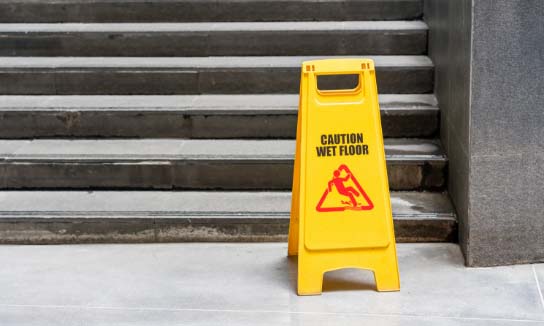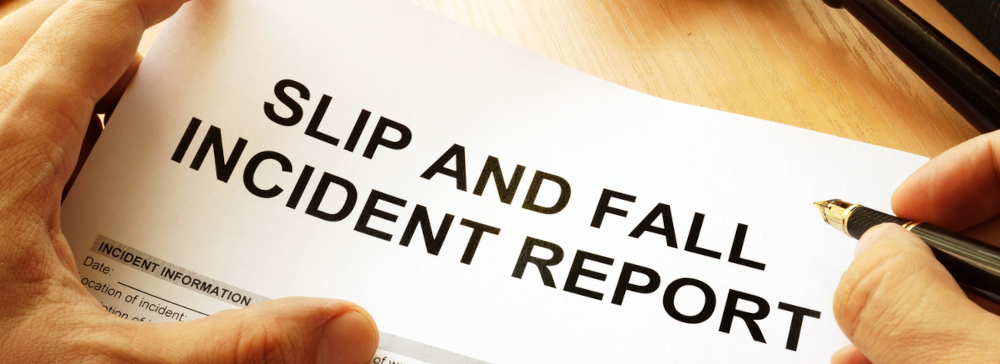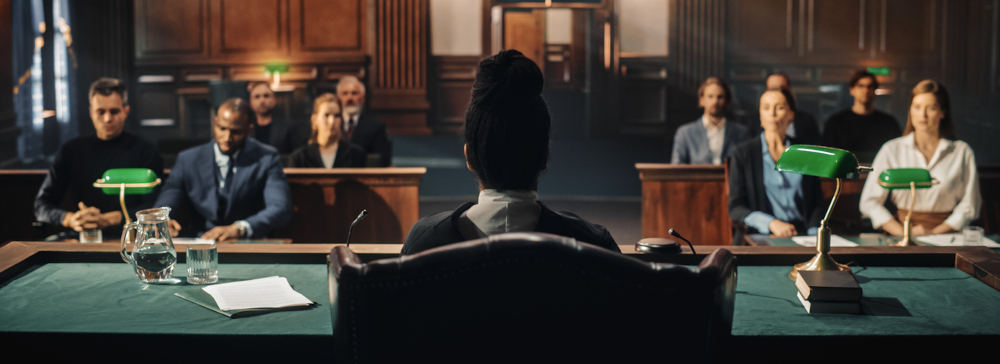
Falls account for over eight million hospital emergency room visits and are the leading cause of visits. Has a slip and fall on a wet floor or other surface left you seriously injured or potentially disabled? Know your legal rights. If the negligence of another party, such as a property owner, caused your injury, you may be eligible for compensation for the economic, psychological, and medical hardships you face. It is the responsibility of the property owner or operator to address potential hazards or at least warn visitors of them.
At Salamati Law in Los Angeles, our team is committed to maximizing your slip and fall settlement so you have the financial resources to rebuild your life. We work to achieve the best possible outcome for every client, seeking compensation for all damages, including medical bills, lost wages, and pain and suffering. Call us today to schedule a free consultation about your slip and fall accident. We’re happy to answer your questions and assess your case.
Finding the Facts That Support Your Slip and Fall Claim

We will work tenaciously to identify the liable parties and the cause of your accident. For example, floors and other surfaces can become wet and slippery from spills, detergents, and polishes, or water that is inadvertently tracked in. Property owners and managers are expected to place anti-skid rugs and extra absorbent mats near the entryway where wet or slippery surfaces pose dangers.
Other factors that increase slip hazards include the following:
- Spilled oil, grease, or cleaning products
- Leaking roofs
- Melted snow or ice
- Burst pipes
- Leaking containers
- Condensation from an air conditioner
- Spilled food or beverages
- Recent waxing or polishing
Wet floor slip and fall accidents can happen anywhere in Southern California, including businesses and private properties. For example, you may slip and fall from spilled drinks in stadium concourses, freshly mopped and slick hallways in office buildings, leaky pipes in shopping malls, or rain tracked into restaurants.
A fall on a hard surface can result in debilitating injuries that are not only painful but also costly to treat. You shouldn’t have to pay for the negligence of another party.
Injuries from a Slip and Fall on Wet Surfaces

When a person steps on a wet surface, they often hit the ground before they have time to react. Some of the most common slip and fall injuries include the following:
Traumatic Head Injuries (TBIs)
A blow to the head can cause significant pain and suffering, as well as other symptoms such as memory loss, confusion, speech impairment, and mobility issues. A slip and fall on a wet floor can result in a serious brain injury or TBI as the head makes contact with the ground, a table, or other hard surfaces.
Back Injuries
Bodies often twist unnaturally in a fall, bending the spine past its usual range of motion. Bulging discs, lumbar strains, spinal fractures, and other serious injuries often result. Injuries to the back and neck can prove extremely painful and difficult to treat and may result in impaired mobility and even paralysis.
Hand and Wrist Fractures
People who fall often try to protect themselves, result. One of the most common reactions is attempting to break their fall with outstretched hands. When the full impact of a falling body is placed entirely on the fragile bones of the hand and wrist, severe and debilitating fractures may ensue. For example, a complex wrist fracture may require months of rehabilitation.
Other Injuries
A fall on a wet surface can impact any part of the body and may include the following:
- Facial fractures
- Broken arms
- Elbow fractures
- Broken ribs
- Hip fractures
- Pelvic fractures
- Torn ligaments in the knee and ankles
- Contusions and pulled muscles
Given the consequences of a wet floor slip and fall accident, working with a qualified and results-focused attorney who can build a solid case and improve your chances of getting a favorable insurance settlement is essential. For many people in Southern California, attorney Sean Salamati has been the advocate they needed when their injuries were severe and life-changing.
Who is Liable if I Slip and Fall on a Wet Floor?

Under California premises liability laws, property owners have a legal duty to keep their entrances, aisles, stairs, concourses, and other areas safe for visitors. When they breach this duty, they may be liable for damages and even wrongful death.
In handling a slip and fall claim arising from a wet floor, a plaintiff’s attorney must demonstrate that:
- The defendant owed you a duty of care. For example, restaurant owners owe their patrons a duty of care to keep the premises safe.
- The defendant breached that duty of care by not attending to a wet floor in any area where patrons may walk, such as the entrance, the bar, between tables, and the restrooms.
- The breach of care directly resulted in the fall that caused your injuries.
- You suffered damages as a result of the defendant’s breach of duty.
The liable party in a slip and fall claim could be a store owner or manager, a stadium ownership group or sports team, a government entity, or even a private residence owner.
Can I Still Sue for a Slip and Fall If There Was a Wet Floor Sign?

In California, a property owner must put out a wet floor sign when they know of a liquid spill or other slippery condition they cannot immediately rectify. If they fail to do so or the sign doesn’t provide sufficient warning in a visible location, they could be held liable for slip and fall accidents that occur as a result.
If the property owner places a wet floor sign in the area where you slipped and fell, can you still sue for damages? That depends on the circumstances of your accident. If the sign was placed in a visible location, and you elected to walk there anyway, you may have a difficult time getting sympathy from the courts.
However, there are some scenarios where a wet floor sign may not be enough. Property owners may still be held responsible if:
- The wet floor sign was not clearly visible from your perspective
- The area was so poorly lit, you could not see the sign
- Obstacles left you no choice but to walk through the hazardous area
Wet floors, whether inside or outside of a property or business, are a dangerous condition that owners need to address promptly. If you slipped on a wet floor or deck and there was no warning sign, this would indicate a clear breach of the duty on the part of the property owner.
What Am I Entitled to After a Fall on a Wet Floor?

If you were injured due to a slip and fall accident on a wet floor, you may be eligible for the following damages:
- Medical bills, including payments for ER visits, an ambulance ride, medications, surgeries, doctor visits, and physical therapy
- Lost wages because you are unable to work.
- Lost earning capacity if you return to work but in a different capacity, i.e., a lower-paying position, due to your injuries.
- Pain and suffering
- Emotional trauma
By working with a knowledgeable personal injury lawyer, you can ensure that your compensation reflects the totality of the suffering you have sustained due to the negligence of another party.
Schedule a Free Consultation with Salamati Law

Establishing liability in slip and fall claims is complex, but a skilled lawyer can make all the difference. If you were harmed after falling on a wet surface, a Los Angeles slip and fall lawyer at Salamati Law can fight for your right to fair and reasonable compensation. Our legal team understands the nuances of California premises liability laws and offers free case evaluations to all prospective clients.
There are strict time limits for pursuing compensation in a slip and fall accident, so reach out for a free consultation today to discuss your options. Since we work on a contingency basis, there are no upfront legal fees.